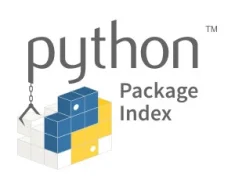Like countless other disciplines, the practice of entrepreneurship is poised to be profoundly affected by generative AI, as is the competitive landscape for startups.
“We’re in a moment of transformation where this is a tool that can do many things around the world and many things in almost any industry,” said Ethan Mollick, SM ’04, PhD ’10, an associate professor at the University of Pennsylvania who studies AI, innovation, and startups.
In a December 2023 episode of the Trust the Process podcast, hosted by the Martin Trust Center for MIT Entrepreneurship, Mollick joined Trust Center managing director to discuss how entrepreneurs can use generative AI to their advantage and what startups should remember about the new technology.
Mollick identified three trends regarding AI and entrepreneurship and offered tips for those who are ready to jump in.
The addition of generative AI as a co-founder
Entrepreneurs are expected to do a wide range of time-consuming tasks, from writing emails and answering phone calls to orchestrating product demonstrations and coding a website. “AI does all of those things well,” Mollick said. “It lets you focus more on what your top skill is, and it kind of handles everything else.”
Generative AI can also serve as a guide. “A third of Americans have a business idea that they haven’t acted on because they don’t know what to do next,” Mollick said. “The AI can tell you what to do next, help you write the emails, [and] help you build the product.”
Mollick noted that users should be aware of the benefits and limitations of the technology. “It’s kind of like an intern who wants to make you happy and therefore lies a lot and is kind of naive [and] never admits that they made a mistake,” he said. “Once you think about [AI] that way, you end up in much better shape.”
New approaches to the practice of entrepreneurship
Generative AI is a new general-purpose technology — one that comes around once in a generation and touches just about everything humans do, Mollick said, like electricity, computers, and the internet have.
For entrepreneurs, generative AI can assist with researching ideas, coming up with logos and names, creating a website, and more, Mollick said.
More broadly, “I think that there is a fundamental rethinking of process,” Mollick said. The ability to test and experiment easily, quickly, and relatively cheaply represents a big change in methodology and “how we approach entrepreneurship, from the ground up.” This includes compressed time frames, because it can take less time to develop new companies with the assistance of generative AI.
Generative AI will alter the competitive landscape
Generative AI will change the role of entrepreneurship, with some companies finding themselves obsolete and many others having to change their approach.
What’s more, competitors across the globe have equal access to the same transformative technology.
“There’s going to be just a lot more global competition,” Mollick said. “[With ChatGPT], now everyone in every country speaks English perfectly [and] can code. What does that mean for entrepreneurship? Talent is all over the place.”
What entrepreneurs should remember about using generative AI
Mollick suggested that entrepreneurs should keep three key points in mind as they try out generative AI.
1. Experimentation is key. “As an entrepreneur, you get to experiment really quickly,” Mollick said. For example, founders can try using generative AI write a letter, and if it’s not good, try again to make it better. If it still isn’t good, then maybe it’s not a good use case. “That kind of cheap experimentation is the key,” he said.
Related Articles
Last year, Mollick set a timer for 30 minutes and asked a generative AI tool to create a product launch plan and email campaign, create a website proposal and execute it, and create a full social campaign. In 30 minutes, “we had 9,200 words of text, emails, a website, a voice file, a script,” he said.
“You’re measuring by minutes,” Aulet said. “When I used to run companies and we started companies, we’d measure it in weeks and months.”
2. Don’t overemphasize the importance of proprietary datasets. There is debate about the value of proprietary datasets, which consist of unique data that a company collects and owns exclusively. Mollick said he questions the assumption that they are important.
The P in GPT stands for pretrained, he noted. “The AI has already learned a whole bunch of stuff, and it knows this stuff already. And that stuff includes everything,” Mollick said. “So the idea that you need specialized knowledge often turns out to be kind of wrong.”
3. Entrepreneurs are well suited for times of transformation. Mollick and Aulet noted that entrepreneurs can take advantage of uncertain, transformative times. “The people who can deal with change are entrepreneurs. That’s what they’re built for,” Aulet said.
“The ultimate power of entrepreneurship is it’s about taking action amidst uncertainty,” Mollick said. “And that’s why it’s valuable. No matter what happens in the world, learning to take action amidst uncertainty is the skill you need.”


